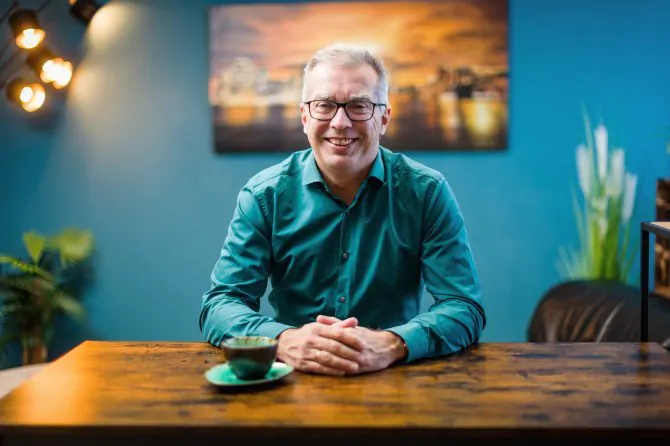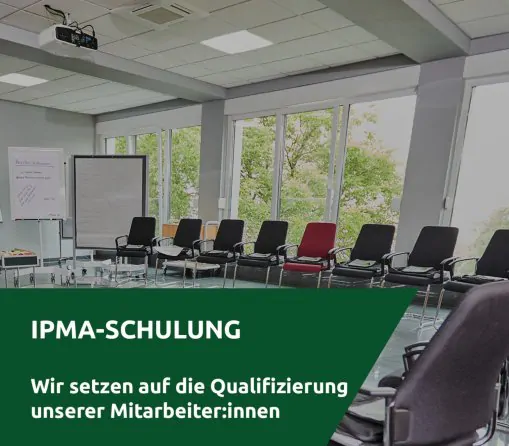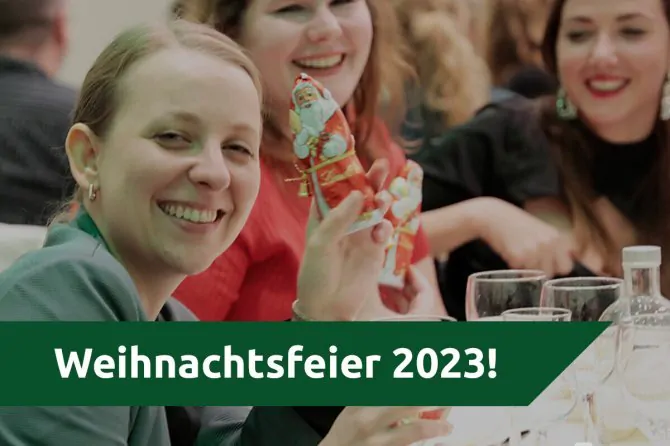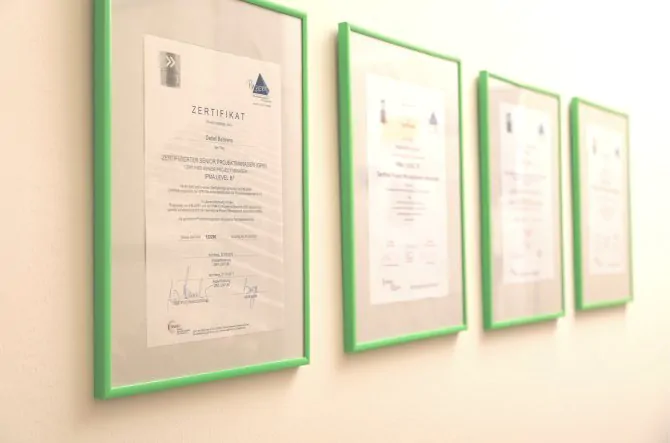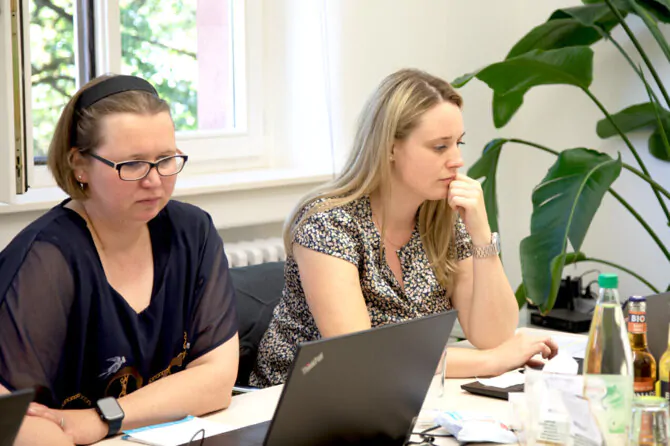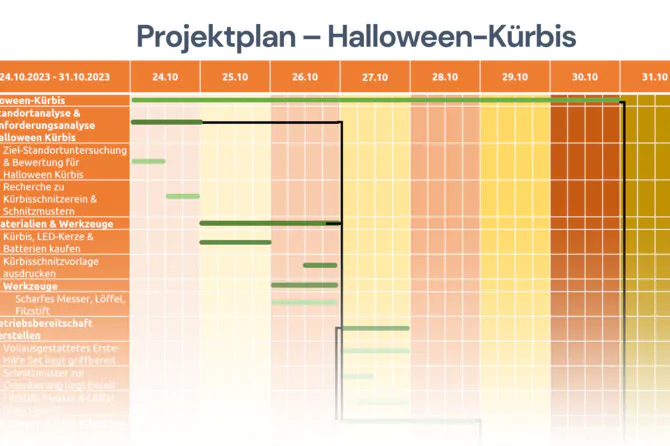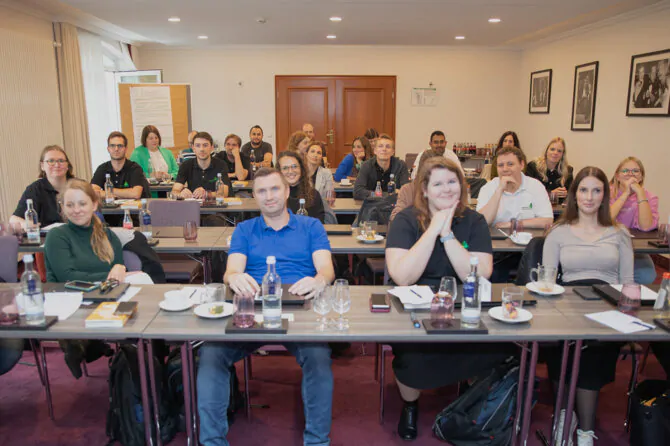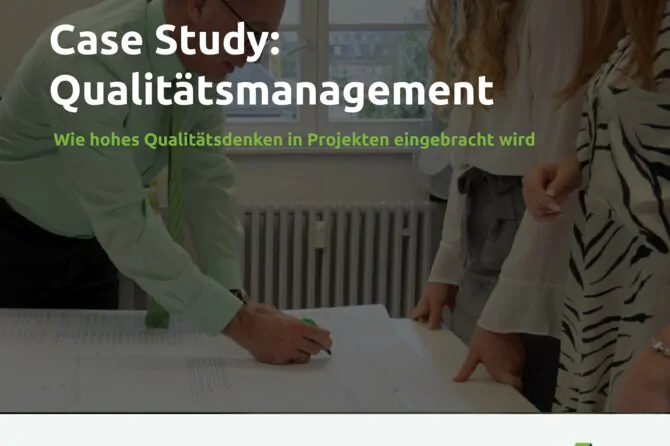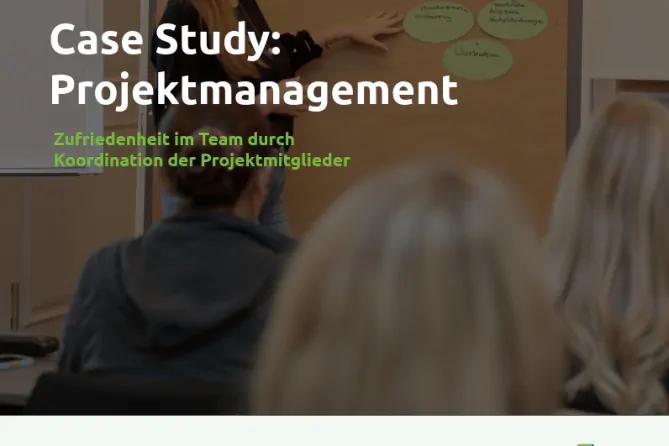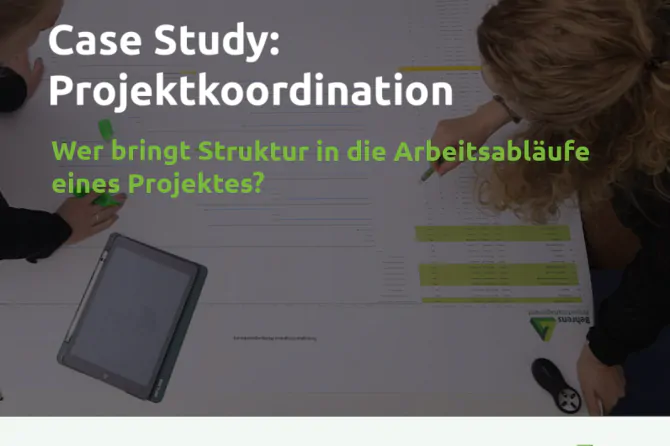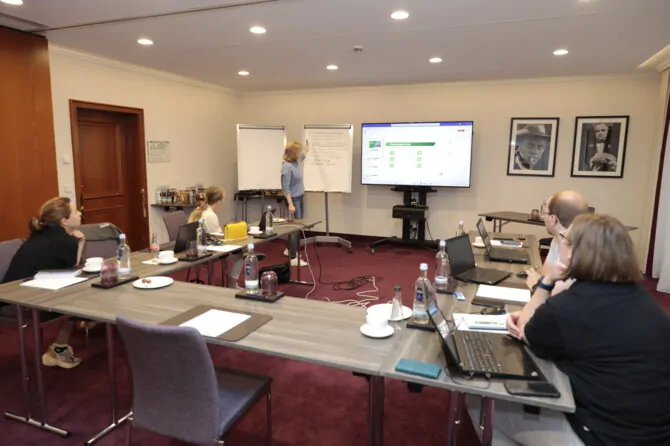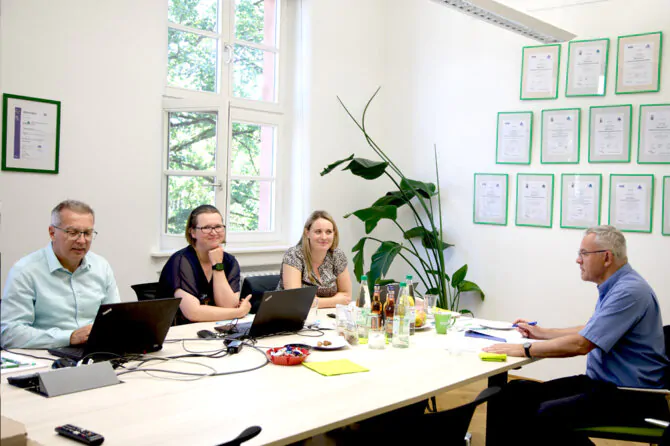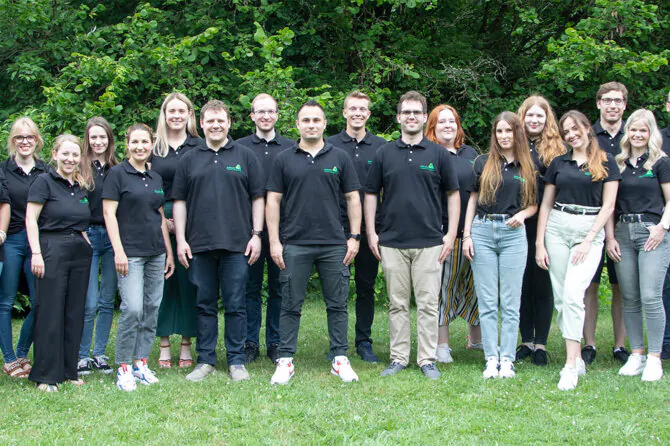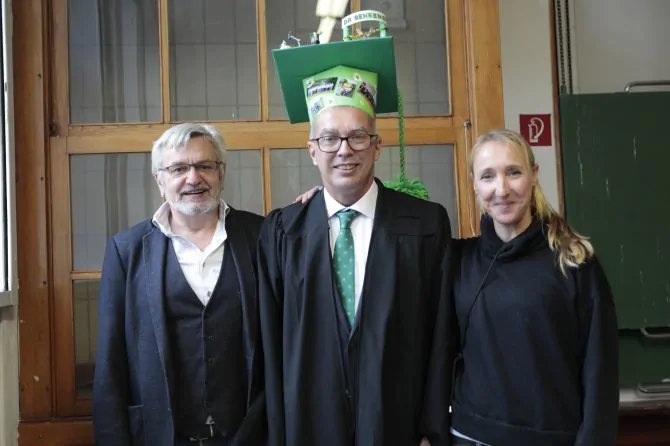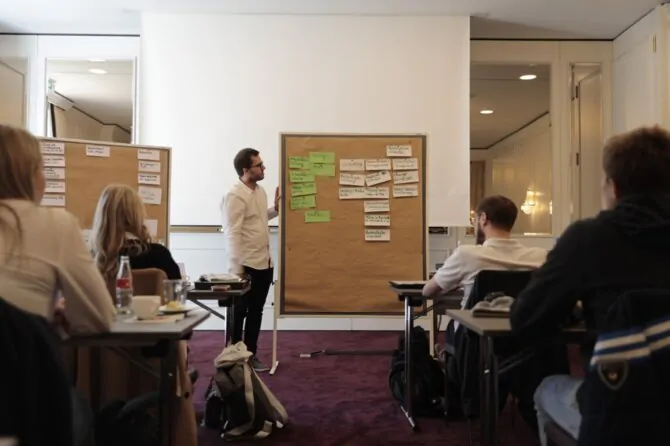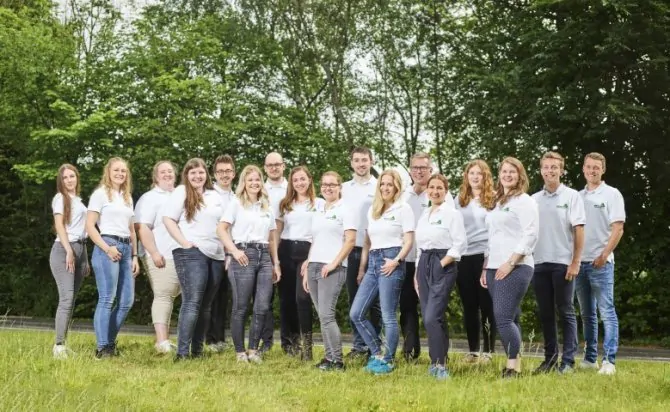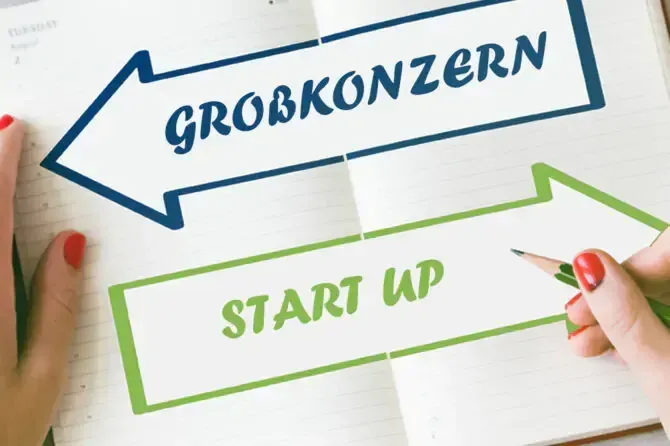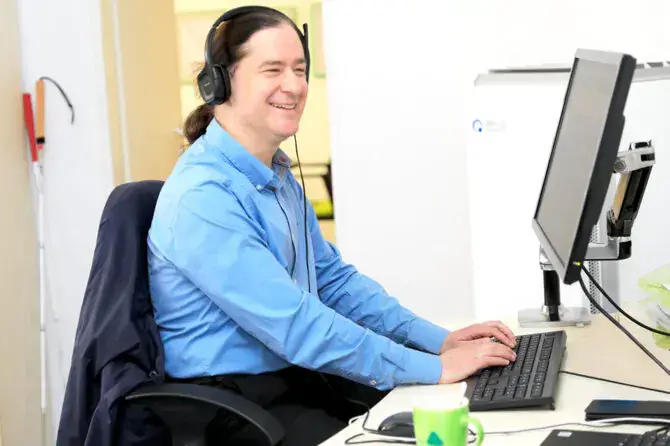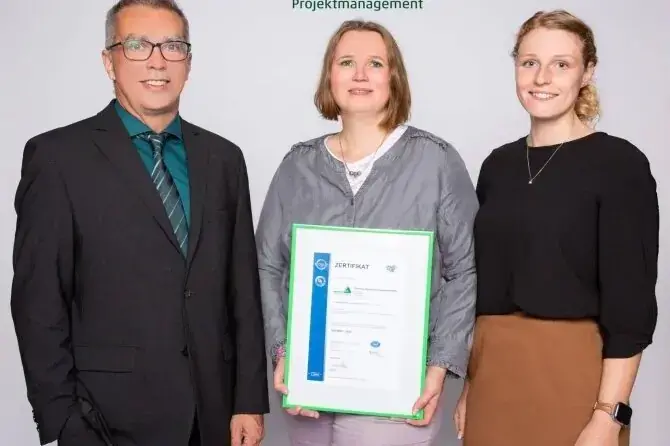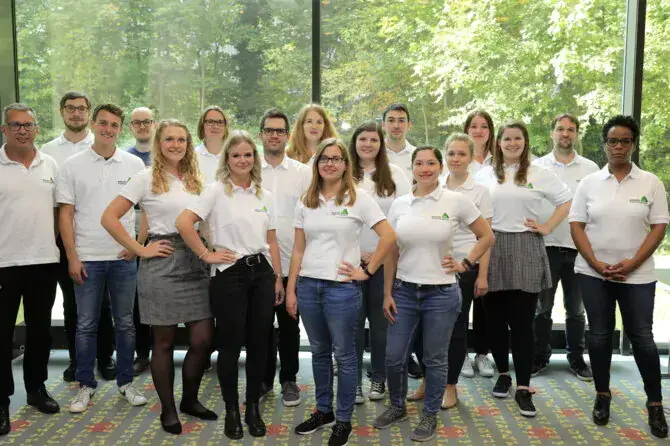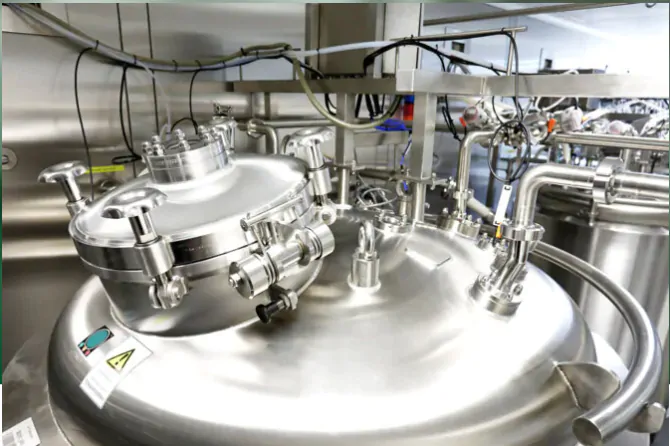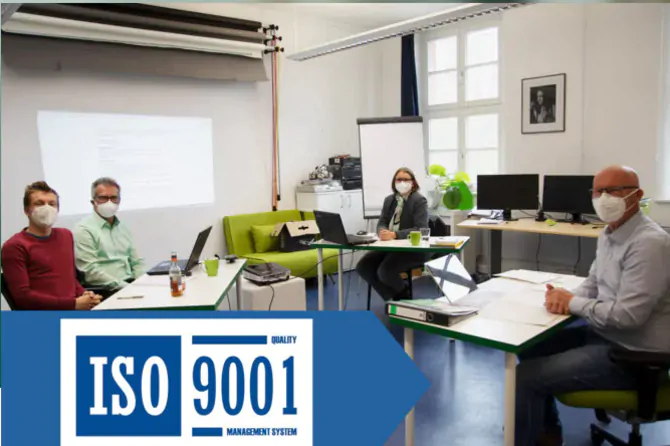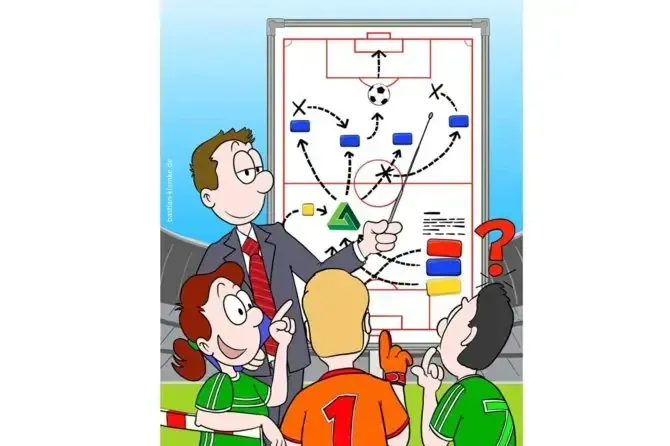Dr. Detlef Behrens: "Enjoying success is my primary goal for the development of employees"
"Dr. Detlef Behrens, 12 years ago you founded Behrens Projektmanagement. Tell us a little more about it!"
I founded the company Behrens Projektmanagement 12 years ago. The business idea was and still is to offer project and quality management services in the industrial sector.
The basic idea to go into self-employment I had much earlier. At some point I had started collecting newspaper clippings and brochures on the subject of self-employment and business plan creation. When the idea became concrete, I was surprised how long I had been collecting: The oldest newspaper clipping was over 15 years old!
By the time I founded the company, I had 20 years of professional experience in 6 different companies in the pharmaceutical industry. At the age of 45, I felt "mature" enough to take the step into self-employment. I had gathered the essential foundations for this in the years before:
- A course of study in process and environmental engineering at the TFH Berlin
- 19.5 years of predominantly positive professional experience in various project management and other management tasks in pharmaceutical companies
- ½ year of bad, disappointing experiences that I would not wish on anyone and yet would not want to miss. Since then, however, I consistently avoid the products of this company - a little revenge may be
- Numerous further training courses in the pharmaceutical-technical field
- Various leadership and management training courses with different providers
- A 2-year MBA program at the Aston Business School in Birmingham
- Certification as Senior Project Manager, Level B, by GPM / IPMA
- And lastly, the project management experience from a large new construction project at my last employer
That almost sounds as if there was not much time left for private things, but nevertheless it was always possible not only to spend time with my wife and our 3 children on vacation and still to train regularly for a marathon in order to stay physically fit - Mens sana in corpore sano and not Mens sana in Campari Soda!
Due to the experience I had gained exclusively in the pharmaceutical industry up to that point, I initially wrote the business plan with a strong focus on the pharmaceutical industry, but without excluding other industries. In the past 12 years, we have supported numerous well-known customers from the pharmaceutical industry (Bayer, Novartis, Boehringer Ingelheim, CSL Behring, Merz) as well as customers from other industries.
The initial sole proprietorship became a limited liability company in 2013, and the company now has 28 employees. As in many other industries, it is difficult to recruit qualified employees with extensive experience. There is no "ideal" course of study for project management and it is not even necessary. However, employees need the inner enthusiasm / intrinsic motivation to lead projects to their goal. My primary goal for the development of employees is not to enjoy their work, but to enjoy their successes. If this is achieved, fun is almost a matter of course. Conversely, this is not a matter of course.
We support our customers in all areas of project management, e.g. investment, organizational or quality management projects. Since projects are by definition always "one-time" events with a fixed beginning and end, many companies do not have sufficient personnel resources available. In order to cover this short-term additional demand competently, the employees of Behrens Projektmanagement GmbH go to the companies and manage or support the projects of the customers on site.
As already mentioned above, I myself have been able to attend numerous seminars in the area of "leadership development". This automatically leads to the question of whether and how much money one wants to invest in the development of leadership skills of one's own employees, even if they do not have any disciplinary leadership tasks themselves. I once saw a very nice cartoon about this:
HR manager asks the CEO, "What happens if we spend so much money on training and the employee:s leave the company afterwards?"
Executive director asks back, "What happens if we don't and they stay?"
Precisely because we never act as disciplinary superiors in our customers' projects, it is necessary to lead the project team members with persuasiveness and clear goals. This requires a good knowledge of the background of employee leadership: relationship levels, communication models (Schulz von Thun), iceberg model, to name just a few. You can learn about these topics in almost any seminar - but it is crucial to practice them in the seminar in the "safe" area and later to follow up, reflect on and, if necessary, further improve them. In this area, I had good memories of Dr. Christine Scheitler from my own earlier seminars, which is why I also commissioned her to train my own employees.
A special focus for our needs was also in the area of "communication in difficult conversation situations". The employees have completed various courses of study and often have only a few years of professional experience. They are then often and spontaneously confronted with difficult conversational situations. In such situations, it is important to recognize the situation with confidence and to act in a competent and level-headed manner. Of course, "difficult" discussion situations are not only conflict discussions - these are actually rather the exception - but also, for example, meetings about urgent problems in the project or job interviews with potential new customers. My goal was to train the employees for such discussion situations in a joint seminar.
Of course, it is not helpful if the boss himself is present in the room - this would very likely hinder an open discussion among the employees about their own difficult experiences. Thus, Dr. Scheitler, in consultation with me, developed a two-day seminar in which I myself was only briefly present in the seminar room for the introduction at the beginning. It is also self-evident that the rule "What is said in the room, stays in the room", which is emphasized again and again, is absolutely adhered to during and also in the post-processing of the seminar. It would not be possible to make up for the loss of trust on the part of the employees if personally reported things were brought out into the open by colleagues or even the seminar management. By the way, this is an understanding of values that I have learned to appreciate very much with Dr. Christine Scheitler, because I know that there are also other customers who want to have information about the seminar events afterwards and which Dr. Scheitler then does not disclose. I have experienced this differently myself at another seminar!
From my own experience and looking at the faces of the employees after such a seminar, I can say: The two days are exhausting and get to the heart of the matter. I learned a lot about my effect on others and was surprised more than once - positively but also negatively. One is certainly well advised to report one's own experiences and difficult situations so that these can then be analyzed in the practical part. Just then the training is particularly effective and not one of those 08/15 seminars of the style go, be sprinkled, pick up certificate of participation, continue as before. That this was not the case here was confirmed to me by the employees a few weeks after the seminar: They tried out what they had learned in practice, recognized difficult situations and were able to react better to them. Thus, the expected success and benefit of the seminar has fully materialized for me.
I have had very good experiences during the transfer period after the seminar when people arrange to meet with colleagues for a regular exchange of ideas - a lunch together in the cafeteria is enough for this. Situations experienced in everyday office life can then be analyzed and discussed from the perspective of those not involved. This also repeats and consolidates what has been learned in the seminar and is good training for regular implementation in practice.
Since the employees of Behrens Projektmanagement GmbH work almost exclusively on site with customers (we have to go to the projects, the projects do not come to us), the employees see each other personally only 1-2 times a year. A joint seminar event like this also contributes to team building - a very welcome side effect! To reinforce this, we also chose a quiet hotel away from the big cities as the location. This gave us time and opportunity for relaxed fireside chats in the evenings.

